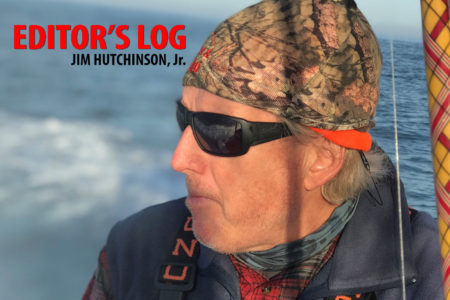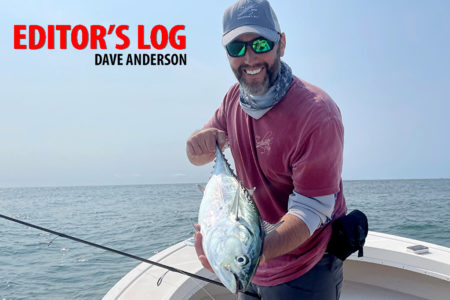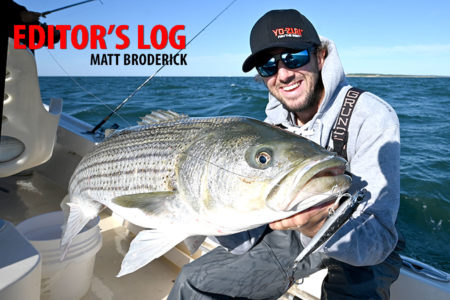Last month I received notification from the Mid-Atlantic Fishery Management Council (MAFMC) of a fisheries compensation fund deadline for financial losses stemming from construction of the Vineyard Wind 1 offshore wind farm about 13 nautical miles south of Martha’s Vineyard and Nantucket, MA. “This notice is a reminder to commercial fishermen that the eligibility period to apply for the Vineyard Wind 1 Fisheries Compensatory Mitigation Program ends on June 3, 2024,” the MAFMC notice said, adding “Commercial fishing vessel owners/operators must submit an online application prior to the June 3, 2024, deadline, to be considered for eligibility.”
MAFMC clearly recognizes that the construction of a large-scale offshore wind site like Vineyard Wind 1 will result in “financial losses” in the fishing community, yet the only members of the fishing industry eligible to receive compensation apparently are “commercial fishing vessel owners/operators.” Sounds like anglers should keep any eye out while watching late-night television for the best personal injury lawyer able to secure the future compensation we deserve!
“The Program was created to provide compensation to commercial fishing vessels/operators for economic losses attributable to construction, operation, and decommissioning activities of Vineyard Wind 1,” the MAFMC notice stated. A tyrannical New Jersey governor and his cadre of well-financed wind shills keep telling us that industrializing our oceans will have no impact on fishing; so tell me then, how could fishermen suffer economic losses if this whole fakakta concept is safe for fishing and the environment?
“The program is open to commercial fishing vessel owners/lessees in Connecticut, Massachusetts, New Jersey, New York, and Rhode Island who can demonstrate historical fishing activities in the lease area,” MAFMC stated. So, if you’re a commercial vessel operator you qualify for government compensation right off the bat, but recreational for-hire captains and tackle shop owners apparently will eventually need the law firm of Dewey, Cheatam and Howe somewhere down the road.
Block Island Wind Farm was the first commercial offshore wind farm in the U.S. and is located roughly 4 miles from Block Island, RI with five turbines, each standing about 328 feet high with rotors spanning 492 feet. Comparatively speaking, the new Vineyard Wind 1 turbine cluster will comprise of 62 turbines with rotors branching out 721 feet across on behemoth towers standing over 853 feet high; that would make them among the 60 tallest buildings in America, just ahead of the 850-foot tall 30 Rock Plaza in New York City.
Most every commercial fisherman I’ve spoken to is vehemently opposed to industrializing our oceans in the name of fighting climate change, and apparently for good reason in terms of the recognized “economic losses attributable to construction, operation, and decommissioning” of industrial offshore wind areas. Clearly, that vocal opposition has resulted in a Fisheries Compensatory Mitigation Program; but what about recreational fishing? It would seem that politicians and their industrial wind accomplices have done a great job of manipulating public perception, so much so that any angler losses are being ignored.
One New Jersey based wind advocate recently touted the benefits of a thousand offshore wind turbines as “fish factories” in producing better catches around the turbines. Really think about that drivel for a moment; next week, the scant 33-day spring sea bass season will close, and except for a one-fish bycatch allowance in July and August, sea bass season won’t open again until October. So if a thousand wind turbines larger than Manhattan skyscrapers make it easier for anglers to catch black sea bass more quickly and with better efficiency, don’t you think we’ll go over our anemic annual recreational harvest limit? And how will MAFMC react to this in terms of future seasons, sizes and bag limits? Undoubtedly by reducing our allowable limits and restricting future seasons!
It doesn’t take a law degree to tell you that when it comes to wind turbines, anglers are getting the shaft.




